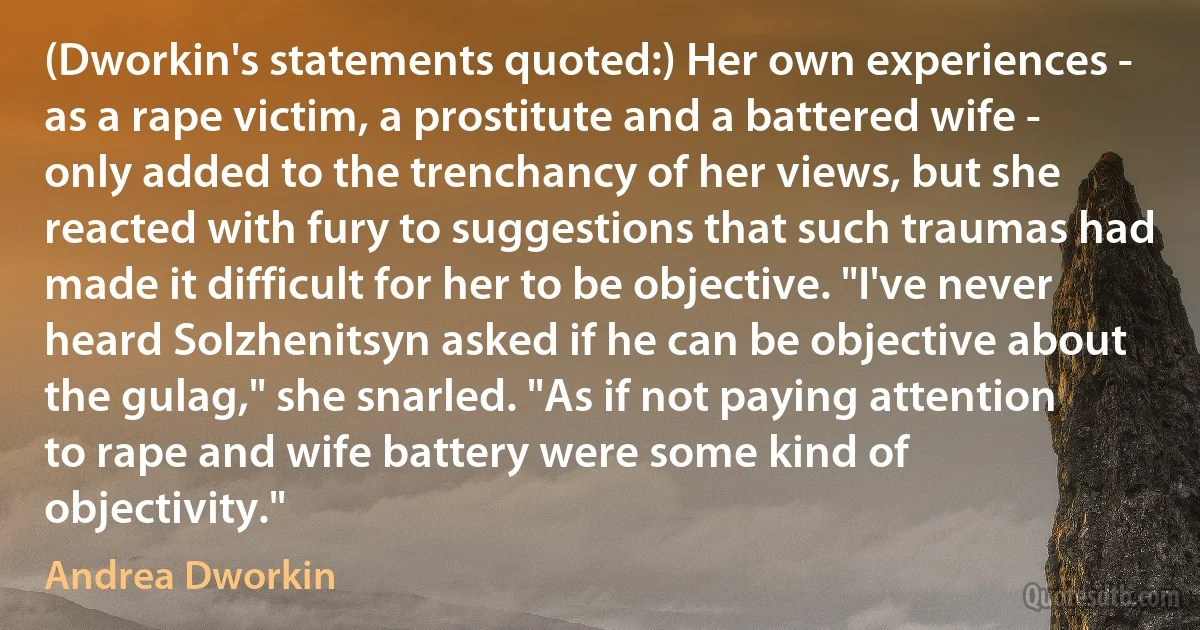Solzhenitsyn Quotes
We are all familiar with the passionate and closely argued appeal against censorship by the outstanding Soviet writer A. Solzhenitsyn.He as well as G. Vladimov, G. Svirsky, and other writers who have spoken out on the subject have clearly shown how incompetent censorship destroys the living soul of Soviet literature, but the same applies of course to all other manifestations of social thought, causing stagnation and dullness and preventing fresh and deep ideas.
Such ideas, after all, can arise only in discussion, in the face of objections, only if there is a potential possibility of expressing not only true but also dubious ideas. This was clear to the philosophers of ancient Greece and hardly anyone nowadays would have any doubts on that score. But after fifty years of complete domination over the minds of an entire nation, our leaders seem to fear even allusions to such a discussion.

Andrei Sakharov
Solzhenitsyn can imagine what pain is like when it happens to strangers. Even more remarkably, he is not disabled by imagining what pain is like when it happens to a million strangers - he can think about individuals even when the subject is the obliteration of the masses, which makes his the exact reverse of the ideological mentality, which can think only about masses even when the subject is the obliteration of individuals.

Clive James
No cause, ever, in the history of all mankind, has produced more cold-blooded tyrants, more slaughtered innocents, and more orphans than socialism with power. It surpassed, exponentially, all other systems of production in turning out the dead. The bodies are all around us. And here is the problem: No one talks about them. No one honors them. No one does penance for them. No one has committed suicide for having been an apologist for those who did this to them. No one pays for them. No one is hunted down to account for them. It is exactly what Solzhenitsyn foresaw in The Gulag Archipelago: "No, no one would have to answer. No one would be looked into."

Alan Charles Kors

